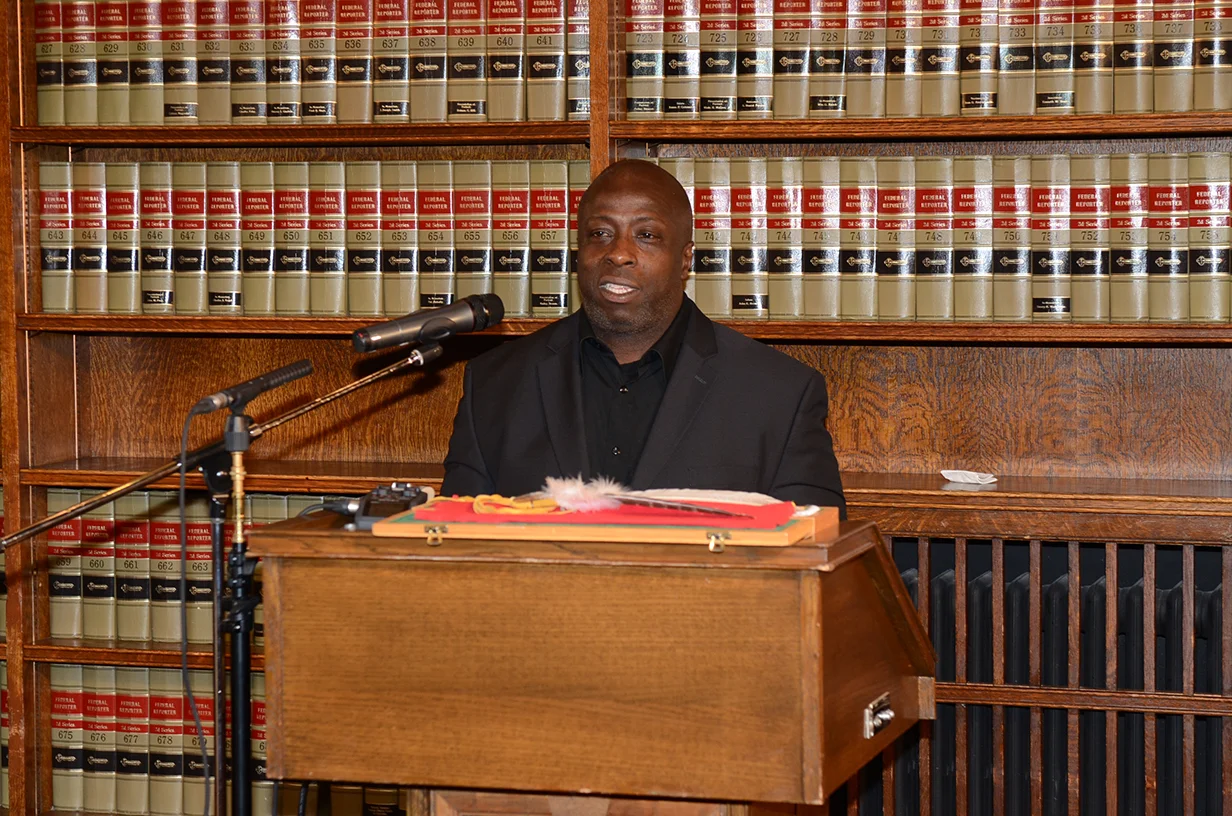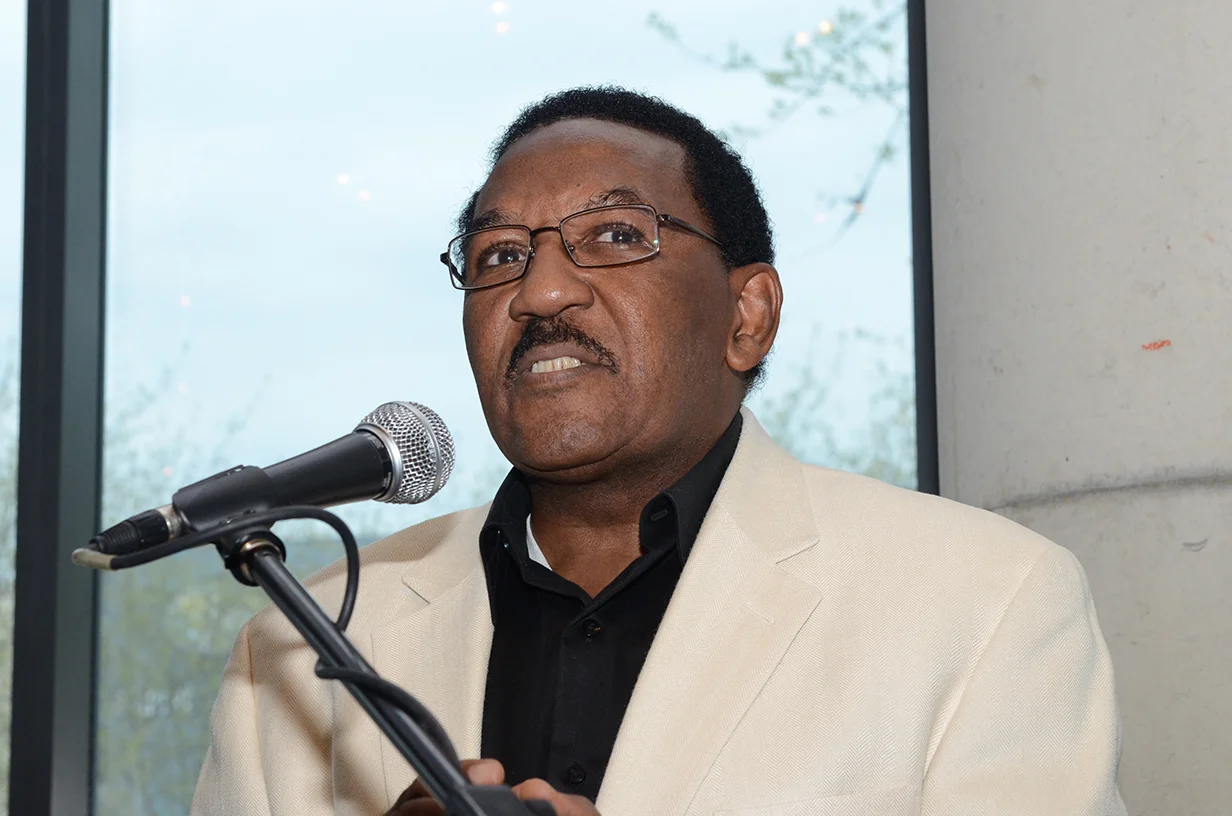Dr. Rubin Carter's compassion remembered
Had it not being for the late Dr. Rubin Carter, David McCallum III would still be behind bars in an American penitentiary.
Nearly three weeks before Carter was released from prison on November 8, 1985 on a habeas corpus writ after serving 19 years for a triple murder he didn’t commit, McCallum and his friend William Stuckey – both 16 years old at the time and from Brooklyn – were arrested and charged with the kidnapping and murder of Nathan Blenner, a 20-year-old White male from Queen’s New York.
Opting to go to trial instead of accepting a plea deal because they knew they were innocent, McCallum and Stuckey -- who had made false confessions that they later retracted – were sentenced to 25 years to life in prison.
In February 2004 while reading an interview Ken Klonsky – he collaborated on Carter’s last book, ‘Eye of the Hurricane: My Path from Darkness to Freedom’ -- did with Carter in The Sun magazine, McCallum penned a letter to Klonsky who forwarded it to Carter.
“I was captivated because I knew who Rubin was,” said McCallum at the Association in Defence of the Wrongly Convicted (AIDWYC)) second annual Wrongful Conviction Day event at the Law Society of Upper Canada last Friday.
McCallum said he cried like a baby when Carter, who was exonerated of all his charges in 1988, wrote him in prison.
“There were no guarantees that he was going to help, but the fact that someone would listen for the very first time in over a decade was more than enough for me to appreciate anything anyone had to offer with respect to my case,” he pointed out. “I just wanted someone to hear me.”
McCallum was anxious for help as he had exhausted his federal appeals by 1993 and had written almost 600 letters pleading for assistance.
Carter met McCallum for the first time during a prison visit in November 2004.
“He made me laugh and he kept things simple during that visit which was good because I was a nervous wreck,” noted McCallum. “He promised that he was going to get me out of prison, but it was going to be a fight. He also told me that when I got out, he wanted me to live a pristine life. I knew what that meant. Rubin didn’t want me to embarrass him, my family and anyone who believed in me and my innocence. That was the easy part as far as I was concerned because there was no way in the world I was going to do anything to wind back up in prison. I felt I didn’t belong there in the first place. The difficult part for me was trying to get the help that I desperately needed.”
McCallum didn’t have to worry because Carter always fulfilled his promises.
This was the first case that the former prize fighter had adopted as head of a new organization he started – Innocence International -- after leaving AIDWYC which he co-founded in 1993 to provide support to the wrongly convicted, raise public consciousness on issues related to wrongful convictions and help reform the legal system.
He quit the organization after Susan MacLean, one of the original prosecutors of Guy Paul Morin, was appointed to the Ontario Court of Justice. DNA evidence exonerated Morin of the rape and murder of Christine Jessop, an eight-year-old neighbour.
“I had a problem when Susan was elevated, but the board did not agree with me,” Carter told Share in an interview. “AIDWYC was created to help free innocent people and to hold accountable those who deliberately perpetrate and those who benefit from wrongful convictions. In my opinion, she was being rewarded for participating in the conviction of an innocent person. She still maintained Morin was guilty even after DNA absolved him.”
While illness prevented Carter from visiting McCallum, he dedicated a lot of time to the case.
Two months before his death in April 2014, Carter – in an op-ed article he wrote that appeared in the New York Daily News – asked the authorities to take a fresh and honest look at McCallum’s case.
“A man like McCallum, who has been wrongly convicted and has so far spent 28 years (beginning when he was just 16) behind bars, needs an unprejudiced higher authority, a person with nothing to lose or gain by righting an injustice, to examine the evidence that people have refused to act on all these years,” Carter wrote. “Is it wilful blindness or self-interest that was to blame?”
McCallum was set free last October after the district attorney determined there was not a single piece of evidence that linked him or Stuckey – who died in prison of a heart attack in 2001 – to Blenner’s abduction or death.
“That would not have happened had it not being for Rubin stepping out and sacrificing part of his life for us,” said McCallum who presented the inaugural Rubin Carter Champion of Justice Award to John Artis, Carter’s co-accused.
They were convicted in 1967 by an all-White jury and sentenced to triple life terms even though they passed lie detector tests and a victim of the triple shooting swore that they were not the gunmen.
Artis quit his job in the United States to care for Carter who succumbed to prostate cancer at his Toronto residence.
John Artis admires the award he received on behalf of the late Rubin "Hurricane" Carter. David McCallum made the presentation
“The authorities told me I would be allowed to go if I just said it was Rubin Carter that committed the crimes,” Artis, a track star in his teenage years, recalled. “After passing a lie detector test, a New Jersey state trooper said if he found I had anything to do with the murders, he would do his best to see I was sent to the electric chair. That was not a great thing to hear when you are 19 and had goals and dreams of going to college and hopefully participating in the Olympics…I never acquiesced to what the state wanted me to do and name an innocent person as a murderer and convict myself as well. I may be crazy, but I am not that stupid.”
Being Carter’s caregiver in his final years was a full-time chore that Artis embraced.
“I was at his bedside when he took his last breath,” he said. “We had walked this long and tough road together and I had to be with him at the end.”
An AIDWYC ambassador, Artis – who now resides in Hamilton -- said the organization needs financial resources desperately.
“Freedom is not free,” he added. “We need donations so this organization can continue with the valuable work of bringing cases of wrongful conviction to the forefront.”
Toronto and 19 other Canadian cities have proclaimed October 2 as Wrongful Conviction Day.
“This year, we have chosen to focus our attention on one particularly troublesome reality surrounding wrongful convictions and that is that marginalized members of our society are more vulnerable to the many causes of wrongful conviction,” said AIDWYC co-president Russell Silverstein. “…We believe that the same factors that make racialized people more vulnerable to wrongful convictions make them less likely to seek or receive help after they have been the victim of a miscarriage of justice. For those reasons, we believe wrongful convictions and other educational and awareness events are of the utmost importance.”







